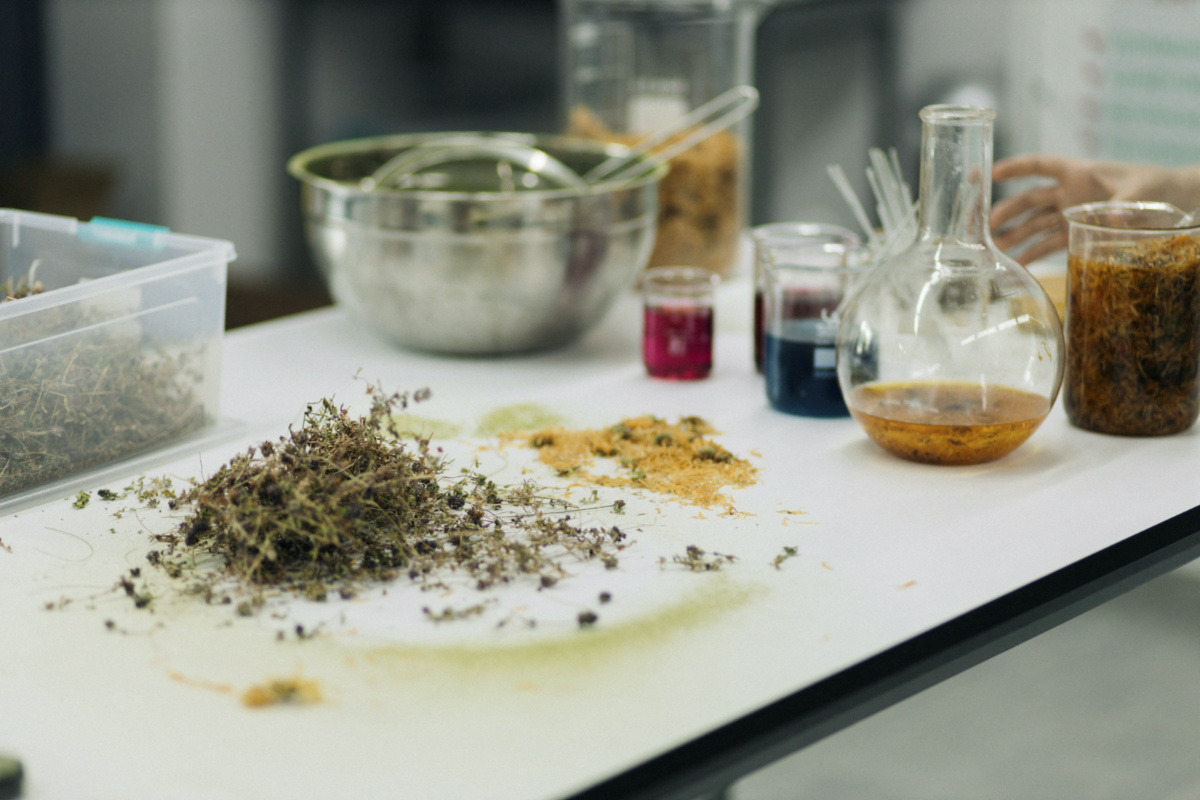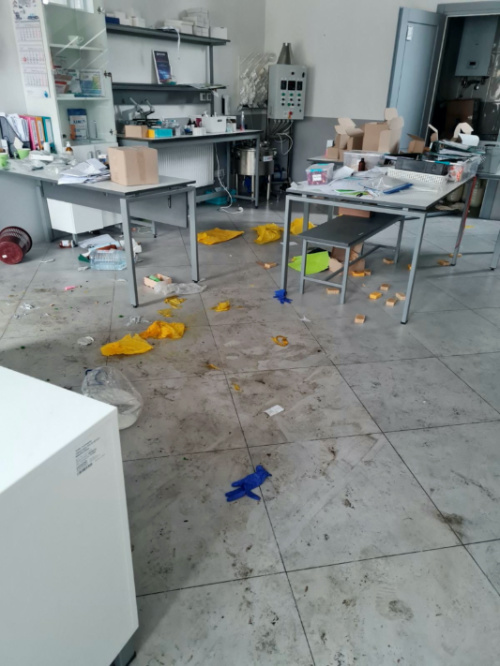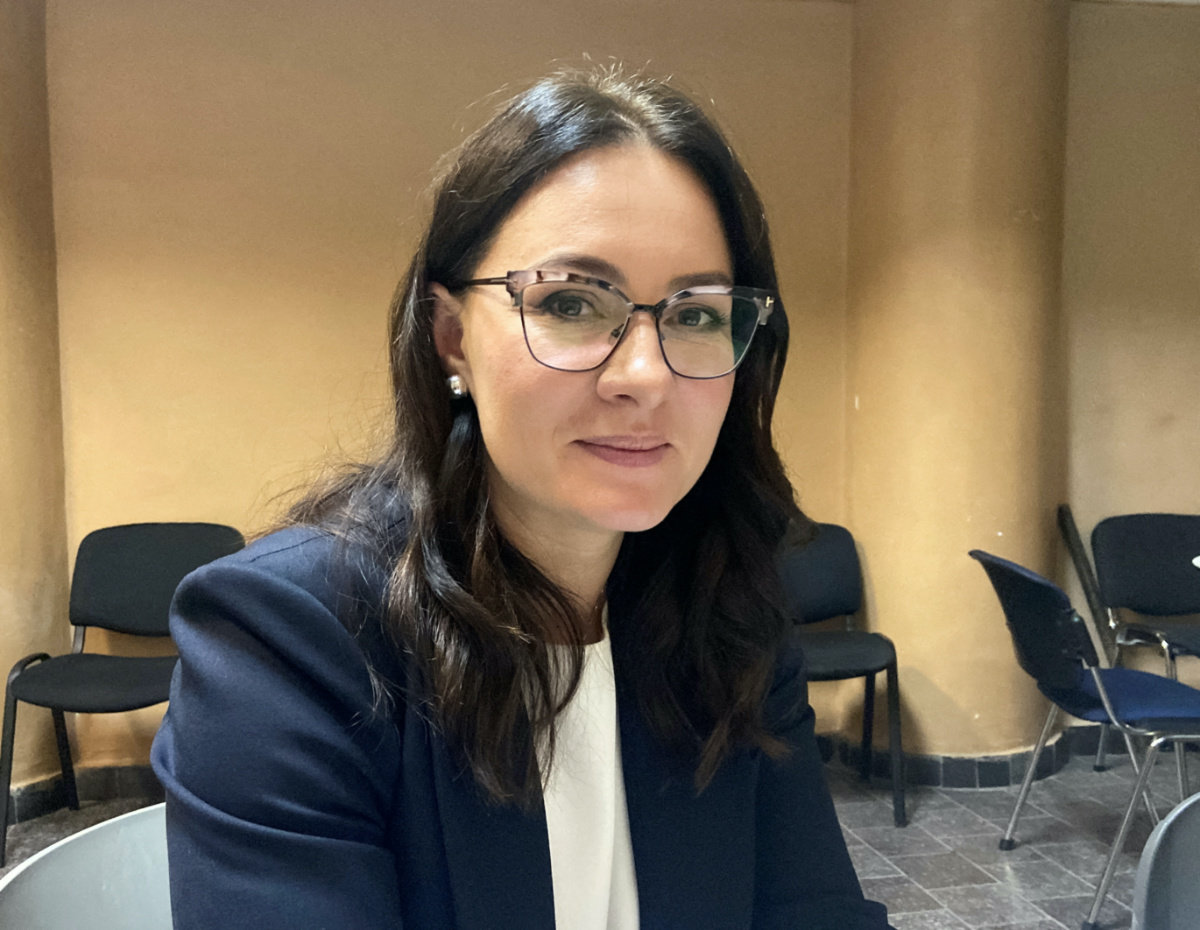
ANDREA SHALAL, of Reuters, reports on the role small businesses are playing in supporting the conflict-torn country’s economy…
Lviv, Ukraine
Reuters
Victoriia Maslova abandoned her herbal cosmetics factory in the Ukrainian town of Bucha on the first day of Russia’s invasion of the country, fleeing to Poland with her mother and three younger brothers when rockets began hitting a nearby airport.
A month later, they were back in Ukraine, determined to keep manufacturing Maslova’s plant-based cosmetics brand, Vesna.
“We love Ukraine. We wanted to return to our country and work here,” says Maslova, 24, who founded the business seven years ago with her mother, Inna Skarzhynska, 44.

Herbs and plants used by Victoriia Maslova and her mother Inna Skarzhynska, founders of plant-based cosmetics company Vesna, to make their skin and hair care products, are seen in this undated handout picture. Vesna is a Ukrainian word that means spring in English. PICTURE: Vesna/Handout via Reuters.
To reverse the economic shock caused by the biggest war in Europe since World War II, Ukraine’s government is pinning its hopes on the entrepreneurial resolve of people like Maslova, along with the return of millions of refugees – and large-scale international financial aid.

View of a laboratory of plant-based cosmetics company Vesna, which, according to its co-founder Victoriia Maslova, was ransacked and looted during Russia’s occupation of Bucha, on the outskirts of Kyiv, Ukraine. PICTURE: Vesna/Handout via Reuters.
Waiting until after Russia’s chaotic withdrawal in April from Bucha, a town near Kyiv now notorious for an occupation that left civilians’ bodies strewn in the streets, Maslova’s mother returned to the factory. The shop floor had been looted and was in disarray, but she salvaged some equipment and loaded it on a truck. They set up a new operation in the relative calm of Lviv, some 450 kilometres west near the Polish border.
Five months later, Vesna products are sold in more countries than ever, including Poland and Lithuania, and Maslova recently won a deal to produce goods for a private label in the United States, she said. All the while, the company has been donating skincare and haircare products, labelled “You are our hero”, to women and men serving at the front.
The war, which Moscow calls a “special military operation”, is now nearing its eighth month. Despite recent wins for Ukraine on the battlefield, experts believe it could drag on for a long time yet, leaving millions of Ukrainians displaced within the country and nearly eight million outside its borders.
So, at the same time as Ukraine’s forces fight to regain territory seized by Russia since the 24th February invasion, the government in Kyiv is racing to steady the economy, and to find employment opportunities for those who fled homes, jobs and businesses in the east and south.
The economy is expected to shrink by more than a third this year, but with businesses reopening, Economy Minister Yulia Svyrydenko sees output stabilising and growing by as much as 15 per cent in 2023, albeit from a low base. And in a decade, she dreams of it more than doubling from pre-war levels to reach $US500 billion, helped by foreign investments and European Union accession.
“We always say that we have two fronts: one is the military one and the other one is the economic front,” Svyrydenko told Reuters in an interview in the basement of Ukraine’s imposing Soviet-era Cabinet of Ministers building, where the corridors and windows are crowded with sand bags. “The economic one is not less important than the military one.”

Yulia Svyrydenko, First Vice Prime Minister of Ukraine, speaks with Reuters in Kyiv, Ukraine, on 23rd August. PICTURE: Reuters/Andrea Shalal/File photo.
Small and medium-sized businesses like Maslova’s are core to the government efforts.
Economic activity froze across the country after the war began, but restaurants, retail shops and even night clubs are now visibly open again in Kyiv, Lviv and other non-occupied cities, even in Zaporizhzhia, near a besieged nuclear power plant.
The economy ministry has helped 700 companies relocate from frontline areas, of which 480 have already resumed operations, Svyrydenko said. Those companies are benefiting from the return of an estimated three million refugees, helping demand, while money trickles back into the economy from renewed exports, including from three Black Sea ports.
To help displaced companies make a fresh start, the Ukraine Investment and Trade Facilitation Center in Lviv, is offering firms rent-free access to office and manufacturing space, a valuable lifeline.
The task facing the country, and entrepreneurs like Maslova, is daunting, given a recent World Bank and European Union estimate of war damages totalling nearly $US100 billion and ongoing Russian strikes on civilian infrastructure.
Ukraine also faces mounting budget problems, despite a freeze in debt payments agreed by Western government creditors this month and by private creditors in August. It is seeking foreign aid, but also needs private capital to rebuild.
Any investments will require security assurances and strong accountability, given what the German Marshall Fund called Ukraine’s “history of corruption”, in a report last month.
Top economic experts from Ukraine, the World Bank, International Monetary Fund and other donors will work through some of these questions at a recovery conference hosted by Germany in Berlin on 25th October.
The International Monetary Fund on Friday approved $US1.3 billion in additional emergency financing for Ukraine that could catalyze support from other donors, with an eye to a larger, full-fledged program in the future.
Iryna Tytarchuk, who heads the investment centre in Lviv, helps connect displaced business owners to resources, including government micro-credits and loans of up to $US68,000, and US Agency for International Development funds earmarked for women-owned firms that helped Maslova get back on her feet.
“These are brave businesses and brave people who haven’t left everything and gone abroad, but decided to start again and again,” she said. Tytarchuk recalled that many firms saw a bounce in revenues in 2014 when they shifted away from Russian markets after the annexation of Crimea.
“Now, even more markets are opening for them,” she said, noting that a number of businesses in Britain had reached out to her looking specifically for products “Made in Ukraine.”
Close to the front line, Mykolaiv, 800 kilometres to the south-east of Lviv, comes under regular artillery barrages. Here, Julia Konovalova is biding her time, eager to restart Fresh U & detox, her once-thriving healthy food delivery business, when the fighting stops.
Konovalova stayed when more than half Mykolaiv’s population fled. She donated her supplies to the army when the war started, and has been coordinating food aid for the World Central Kitchen relief group in recent months.
“I still have all my equipment. Now I’m waiting until the war is over, and then I’ll start again,” the former hotel manager said. “We just need to survive.”
Near the Russian border, fierce fighting has drained Ukraine’s second-largest city, Kharkiv, of three-quarters of its 2 million residents, although the recent Ukrainian advances have taken back nearby territory.
Rockets damaged Evgeniy Safonov’s wine bar in Kharkiv, but he is already scouting out new locations in safer cities and wants to return to Kharkiv eventually.
“Our investors are interested, even now,” he says. “Call me brave or stupid, I know. But our planning horizon is a matter of days. You never know what tomorrow will bring.”

Skin care products labelled “You are our hero” donated by plant-based cosmetics company Vesna to Ukrainian troops are seen in this undated handout picture. PICTURE: Vesna/Handout via Reuters.
Svyrydenko concedes Ukraine faces big challenges, but says she and other officials are hunting for investments wherever they can, citing estimates that every $US10 billion invested will generate a five-percentage point jump in national output.
Her ministry is studying 50 requests from the United States, Germany, Britain and Poland submitted after the launch of a new “Advantage Ukraine” investment portal at the New York Stock Exchange last month that maps out $US400 billion in investment opportunities, but said it was too soon to provide details.
We rely on our readers to fund Sight's work - become a financial supporter today!
For more information, head to our Subscriber's page.
The World Bank’s private funding arm, the International Finance Corporation, and the European Bank of Reconstruction and Development last month also said they would put $US70 million into a private equity fund investing in tech and export-oriented businesses in both Ukraine and neighboring Moldova. It aims to raise up to $US250 million over the next 12 months.
Andy Hunder, who heads the American Chamber of Commerce in Ukraine, said Ukraine’s economy was demonstrating “phenomenal resilience,” with internet and banking services functioning better in wartime Kyiv than in some parts of Europe at peace.
The group’s latest survey, released this week, showed 77 per cent of its 600 member companies believe the war will end in 2023, and all but two per cent plan to keep doing business here.
Yulia Zavalniuk, whose small Villa Verde flower farm about 40 kilometres west of Kyiv was heavily damaged by Russian forces four days into the war, initially contemplated moving to Slovakia, but decided to relocate to Lviv temporarily, while selling plants to keep paying salaries and cover basic business costs.
“Now is the time for us – small entrepreneurs,” she told Reuters. “We have to be the most creative, service- and quality- oriented to produce goods, sell them and pay taxes,” she said.





